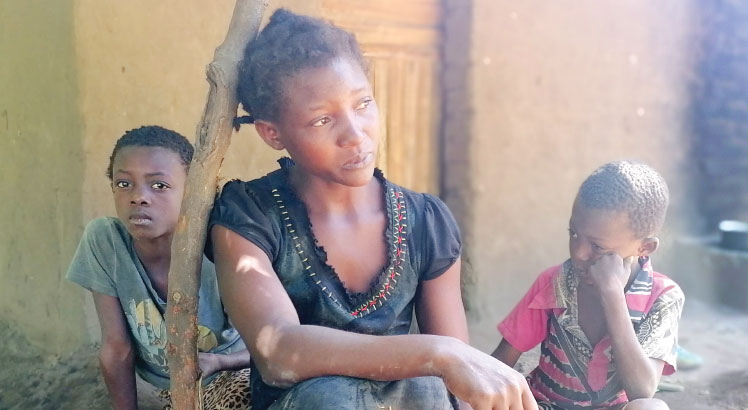Divorce hits children hard
At the age of 27, Joyce Maliko of Mastade Village, Traditional Authority Lundu in Chikwawa District has been divorced twice with three children to look after.
“I have two from the first marriage and one from the second which ended last year. All of them are aged below 10,” she says.
Maliko personifies a common challenge faced by single mothers in Malawi.
Each day, she has to ensure that her children go to school. However, many are the days they stay home due to a lack of basics, including food. They look farmished, soiled and unlikely to remain in school.
“We survive on piecework, but I can only afford one meal a day. Some days, we go without food,” she narrates.

Maliko wishes the men were contributing towards their children’s upkeep, but she does not know the legal remedies she can seek, where and how to get them.
The abandoned family mirror the problem with piling divorce and child support cases in the country.
Chikwawa has recorded a surge in divorce and child support cases for the past two years.
“For the past two years, the numbers have been staggering,” says district courts administrator Lusekero Msopole. “We have recorded 1 481 divorce cases and only 877 have been concluded. The remainder is pending.”
The district has registered 721 child maintenance cases and concluded 374, he says.
Ngwengwe Magistrate’s Court has become the epicentre of the breakdown of marriage, with 610 divorce cases and 384 child maintenance files.
“Ngwengwe has recorded the highest numbers,” Msopole states.
The law empowers courts to compel a parent who is not living with the child to provide financial support to the caregiver. The support covers the child’s basic needs, including shelter, food, clothing, education and medical care.
However, Msopole is worried that some parents fail to provide for their children due to financial hardships, lack of awareness, understanding or communication.
Others cannot meet their legal obligations due to resistance, incarceration, disability, evasion or low enforcement of child protection law.
According to Section 9 of the Childcare, Protection and Justice Act, the Child Justice Court gives child maintenance orders against a person, who is legally required to contribute towards maintaining the child, but neglects the responsibility.
The child, parent or guardian have the liberty to complain to the court.
The law further allows relatives of the child, social welfare officers, police officers, teachers, health workers and any other appropriate person to take the liable persons to the children’s court.
Section 18 of the law states that maintenance orders shall be enforced within 30 days though the court may make an order for a longer period.
The law prescribes a custodial jail sentence or a K50 000 fine for failing to support and maintain the child.
Chikwawa district social welfare officer Aaron Macheka says it is worrisome that some families, especially children, face significant risks when divorce disrupts this foundation.
“The consequences extend beyond the emotional toll on children,” he says. “Basic needs become unattainable, social care breaks down and vulnerable family members, particularly mothers, find themselves exposed to abuse and exploitation.”
Macheka adds that limited resources, coupled with emotional strain, often hinder children’s well-being and cognitive growth.
“The fractured family structure, often marked by a struggling mother, can lead to psychological distress for all involved, perpetuating a cycle of social issues,” Macheka observes.
Concurring, mental health expert Precious Makiyi says divorce takes a crippling toll on early childhood development, denying children in broken families a solid start and better chances in life.
“Divorce can impact early childhood development, influencing emotional well-being and behaviour and the children from the broken marriages may face challenges in forming secure attachments, leading to potential impacts on future relationships,” he says.
According to Msopole, child support laws promote early childhood development by ensuring that children have access to the financial resources and other support they need to thrive during their formative years.
The courts are required to give orders in the best interest of these children, including their financial stability, access to resources, reduced stress, parental involvement and legal protection,
He says: “It is important for parents to comply with child support orders to ensure the well-being and financial stability of their children.
“If circumstances change, such as a change in income or custody arrangements, it may be possible to apply for a variation of the child support order through our court system.”
The experts urge parents to comply with court orders and swiftly communicate any changing circumstances that may affect the child support not for fear of legal consequences, but for the good of the child.





